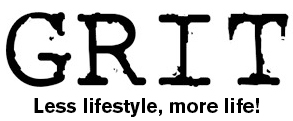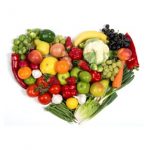

Editor
This month you shared important issues which you feel are not discussed often enough, but should be. Thank you for such a diverse range of contributions ranging from bullying and dealing with bereavement to being ‘plus size’, vegetarianism and even the impact having children can have on your marriage!
Our December issue next month will be dedicated to all of our 2017 contributors. We are currently putting together our topic list for 2018 so please send us your ideas for any areas which you would like to read more about or discuss. We would also love to hear from you if you would like to be GRIT a contributor in the New Year. If you are interested, or would like to find out more, please drop us a line at grit@womenempowered.co.uk.
We look forward to hearing from you.
We’ve got a bully in our family,
The overbearing sort.
The type that looks you up and down
Saying evil things for sport.
I don’t believe he notices
When he comes into a room.
Backs straighten, smiles fade…
There descends an air of gloom.
I used to think the bully in our family
Was intelligent and strong.
But as I grew and gained more skills,
It was obvious I was wrong.
He certainly has his talents
But whenever he makes a mistake
Changes the truth and with explosive rage
It’s me he tries to forsake.
When there’s a bully in the family
Your primary emotion is fear
You learn to hold yourself really tight
Ready and braced for the next sneer.
It doesn’t matter what you do
You’ll never get it right
Any word, any deed, even a sigh
Is fuel for the next strike.
We’ve got a bully in our family
His is the only voice you hear.
Loud, abrasive, arrogant
Forever in your ear.
He lays into you with joy
But his expression is stern and grim
I wonder what would happen
If he turned that eagle eye on him.
The bully in our family
Has devoted his entire life
To telling me and everyone else
We’re the cause of his strife.
But I’ve realized something lately,
And it’s taken far too long to see,
I haven’t got to watch my step
Because the problem isn’t me.
We’ve got a bully in our family
And fury courses through my veins
No matter what distance I keep
The unpleasant legacy remains.
The pains of unprovoked attack
Surge beneath my skin
I can never leave him far behind
Because the enemy now lies within.
We’ve got a bully in our family
And it’s become a full time job
Hunting for the girl I might have been
For the goodness he’s tried to rob.
For while I’ve been busy growing
He’s stayed exactly the same
Well, how can anyone learn
When all they do is blame?
The bully in our family
For a while was not so strong.
Whenever he had a go at me
I’d tell him he was wrong.
He became a rather tragic soul
He didn’t know what to say
I saw why he behaves like this
He’s too fragile to be any other way.
But the bully in our family
Has bought the strength he needs
Giving friends and family members
A vested interest in his deeds.
Dousing himself in rosy hues
Pretence has won the day
So I find my only option now
Is to stand tall and walk away.
When I had my daughter 3 years ago I realised there was so much information and advice on what to expect during pregnancy and becoming a mother. However what no one ever talks about is the impact that motherhood can have on your marriage. In fact, in many cases even you and your spouse won’t talk about it. Some things are just so overwhelming and confusing, you can’t put them into words.
Moving from being a couple to a family of three is exciting, exhilarating, and wonderful. It’s also exhausting, exasperating, and worrisome. Studies show that almost two-thirds of new parents have concerns about their relationship that did not exist before having children.1
Having a good relationship with your spouse post-baby can be really challenging. When many couples become parents they may become more distant and their relationship more ‘business-like.’ Time to relax together is replaced by endless to do lists. You are both constantly ‘on duty’. Domestic duties double and so does the bickering. Sleep can be scarce and there is little time and energy for intimacy. Everything can get heightened with no time and energy to resolve.
However, satisfaction with your spouse is one of the biggest predictors of overall life satisfaction so all the time and effort that you spend investing in your marriage is well worth it. Children are great imitators of behaviour, and if they see you sharing a strong loving relationship they are more likely to get on with their siblings, friends and develop strong relationships in the future themselves.
Here are a few simple things that I found made a big difference for me:
- Be direct
Ask your partner what you need from him. As women we often believe that if we state what needs to be taken care of a man will automatically volunteer to do it. Men respond better to direct requests.
- Say Thank You
When your partner does what you want, thank them. You may not think that this is fair (especially if you don’t feel appreciated) but this makes them more receptive to further requests and niceties breed a good atmosphere. By appreciating someone you teach them the art of appreciation.
- Make a date with yourself
Schedule some time out for yourself, in the same way that you do for your children’s activities. Use this time to either do things on your own that make you happy or with friends that keep you connected to who you were before you had children. Bringing a happier more fulfilled person into your marriage, makes for a happier marriage.
- Enjoy time together
Set aside at least some chunk of time each day to be alone together, even if it’s a tired twenty minutes after the kids are in bed, refresh your connection with each with other. Open up, talk and laugh. A good relationship can only be sustained if you share your feelings, fears and needs.
I believe that there is a misconception that good marriages just happen. If you marry someone you love and get on with, you can have a good marriage. However really good marriages take time, effort and commitment. When positive energies radiate from spouse to spouse, the whole family benefits.
Reference: 1. http://www.telegraph.co.uk/women/sex/10085712/New-parents-at-risk-of-baby-quake.html
Is what I’m going through normal? How long will it take to get over this? Why is it that one day I’m fine and the next day I’m a wreck? There is no ‘right’ way to grieve. No ‘correct’ length of time. Grief is a specific emotion rather than a general one. We grieve the loss of somebody or something and each of us will respond to the death of a person we love in our own unique way. But why is it so difficult to come to terms with loss?
To help understand first we need to consider exactly what bereavement is. As well as mourning the loss of the person we also mourn the loss of the relationship we had with them. All the skills and qualities we shared. All the emotional, physical or intellectual needs that the relationship met. All our shared memories and experiences. And also possibly the loss of our expected future.
Scientists have tried to explain how we deal with change. When you experience intense emotions our body makes chemical changes that you may experience as a longing, a desire or an ’emptiness’. There then quickly follows an impulse to reach out for the thing that will fill this gap. Your muscles may tighten and you may feel ‘ready’, excited or experience some form of eager anticipation. Once you have received the thing you want, you feel relief. At this point your body releases a different set of chemicals which switch off the feeling of ‘need’. The part of our body which mediates relaxation and wellbeing comes into play and you feel softer and happier and relax. [1]
However when you lose someone you care for no matter how much you reach out, you do not receive the sense of completion which allows you to wallow and move on. If your need is for a cuddle, it may not be for a cuddle from anyone, but specifically a cuddle from that person. A cuddle from anyone else, although comforting, will not fulfil the biological criteria to switch off the system and so your body will continue to yearn long after your mind has understood your loss.
A cycle like this is called an open cycle and looked at in this way, questions like ‘What’s the matter, is it still your mother?’ become inappropriate. Open cycles can also be triggered. This means that when something reminds you of the person, your feelings and memories can still feel as real and raw, even many years later.
A short blog cannot do justice to the intricacies of the various parts of the nervous system nor to the complexities of grief and loss. However it is important to say that no relationship is simple or one-dimensional and bereavement can involve a wide range of powerful emotions and responses.
Bereavement is not something you ‘get over’. It is a loss you learn to live with, something which you build a new life around. Rather like a physical wound which has never properly healed, sometimes you will hardly remember it is there, sometimes it will twinge and sometimes it will invade you for the whole day.
For more information visit www.nk-bodypsychotherapy.com
Reference: [1] Kathrin Stauffer – From Wanting to Having: the Vasomotoric Cycle and Receptivity. Journal of the Association of Biodynamic Massage Therapists (JAHBMT) Vol 8 issue 1, Winter 2004/5, p. 7-9
An increasing number of people are embracing vegetarianism either for perceived health benefits, environmental issues or other ethical factors.1. But how do our dietary choices impact our health from a medical view?
Human anatomy has evolved to support a primarily vegetarian diet, and evidence shows our taste buds have evolved to crave meat’s savoury flavour.2 Carnivores have short intestines (only 3-6 times body length) however a human’s intestines are long (10-11 times their body length) to allow slower digestion of plant foods.2 Human’s high cognitive abilities and intelligence has enabled us to supply the mass meat production that we see today.
The health risks
In my personal experience vegetarians appear to be winning the fight against heart disease compared to meat eaters, with an apparent reduced risk of developing heart disease. However, with simple lifestyle changes, such as choosing leaner, healthier meats like fish and turkey, meat-eaters can still enjoy animal-based protein and reduce their health risks.
Research has linked heme iron (found in red meat) with an increased risk of colon and rectal cancer.3 The World Cancer Research Fund has found that eating processed meats such as sausages and bacon increases this risk further. Studies have also proven that diets high in animal protein (beef, pork and lamb in excess of 5 times a week) have a 4-fold increase in cancer risk compared to high-protein diets derived from plant based sources.4 Eating processed meat also increases the risk of type 2 diabetes.5
Heme iron in meat is more readily absorbed than non-heme iron, which is important if you have anaemia. However, in my opinion, the benefits do not stack up when considering the risks of cancer and heart disease. Vegetarianism however does not combat the issue of Vitamin B12 associated anaemia. Vitamin B12 is primarily found in animal products and is necessary for good nervous and digestive system health.6 Vegetarians and vegans are commonly affected by B12 deficiencies, therefore B12 supplements are recommended.6
The benefits of vegetarianism
Vegetarian diets rich in whole grains, legumes and nuts help improve glycaemic control, especially in those with a predisposition to diabetes and those already suffering with diabetes.7 Vegetarians also have an ability to retain more calcium than meat eaters, thus leading to healthy bones and teeth. This is because eating meat produces acids that must be neutralised, requiring us to leach calcium from the bones, which is then lost in urine.8
Studies show vegetarians have a reduced chance of developing gallstones and kidney stones.9 A vegetarian diet may also help promote a long-term healthy weight. According to a peer-reviewed Oxford University study, meat eaters had an average BMI 8.3% higher than vegetarians.10
Diet fads
Low carbohydrate diets have recently become popularised for weight loss. Meat sources provide a convenient source of protein for quick results and it is true that it takes fewer calories to get protein from lean meat then it does from vegetarian options. However, eliminating an entire food group, such as carbohydrates, altogether is not recommended, as they are an essential part of our nutrition, especially if you have a higher caloric demand such as when exercising. Eating good carbohydrates is essential, such as oats, brown rice and legumes. The beauty of legumes is that they are a vegetarian source of protein and carbohydrate in one, meaning with the right recipes you can consume fewer calories by going vegetarian but still meet your body’s nutritional needs.
There are many pros and cons when choosing our diets. Many health concerns seem to benefit from a balance of both animal-based and vegetarian foods, provided you make mindful decisions about the types of foods you choose. Your diet should be based on your unique health requirements and limitations, plus your own personal views on ethical matters such as the environment and animal cruelty.
References: 1. Natural Resources Defence Council (NRDC), and Earth Justice. Livestock Grazing and the Environment. Available at www.earthjustice.org Accessed 31.03.11. 2. Mills RM. The Comparative Anatomy of Eating. Available at: www.vegsource.com. 3. Aloys LA et al. Red Meat and Colon Cancer: The Cytotoxic and Hyperproliferative Effects of Dietary Heme. Cancer Research, 15.11.99. 4. Levine MG et al. Low Protein Intake Is Associated with a Major Reduction in IGF-1, Cancer, and Overall Mortality in the 65 and Younger but Not Older Population, Cell Metab. 2014 Mar 4; 19(3): 407–417. 5. Barnard N et al. Meat Consumption as a Risk Factor for Type 2 Diabetes Nutrients. 2014 Feb; 6(2): 897–910. 6. Vegetarian Society Vitamin B12 Fact sheet. Available at https://www.vegsoc.org/B12. Accessed 18/10/17. 7. Vegetarian diets and diabetes. Diabetes UK. Available at https://www.diabetes.org.uk/guide-to-diabetes/enjoy-food/eating-with-diabetes/vegetarian-diets. Accessed 18/10/17. 8. Physicians Committee for Responsible Medicine (PCRM), “Protecting Your Bones” (47 KB) www.pcrm.org (accessed Dec. 13, 2010). 9. David S. Goldfarb and Fredric L. Cole, “Prevention of Recurrent Nephrolithiasis,” American Family Physician, Nov. 15, 1999. 10. Susan E. Berkow, PhD, and Neal Barnard, MD, “Vegetarian Diets and Weight Status,” Nutrition Reviews, Apr. 2006
Being plus size is nothing new. However, what is new is that earlier this year the first ever beauty pageant for plus size women was held in Chandigarh in Northern India especially for plus size women. The only entry criteria was that entrants should have a waist greater than 34 inches and be aged between 21 to 40 years.
The event was created by Hardeep Arora with Daksha Digitas and the Guest Judge was Bishamber Das, Britain’s First Asian Plus Size Model. There were 40 Finalists, and I was proud to be the only UK applicant representing plus size women. It was a great opportunity for Indian women to showcase their curves and shout out loud and proud, that YES – I am plus size!
The West is more accepting of plus size women, however, I am so proud to have been part of a platform that is striving to make it acceptable to be a larger size in my culture. It seems that society still demands that Indian women should be fair or thin and conform to a particular way of looking to be considered pretty. But, thanks to Ms Plus Size North India 2017, this is the beginning of educating and making people understand that ‘pretty’ comes in many different shapes and sizes.
I was fortunate to go through to the final Top 16 and the best girl won. I am so proud to have received the title of Ms Plus Size North India – Top 16 Finalist as well as being voted Ms Popularity 2017. It was a wonderful experience and I met some magnificent people during my time in India. I would certainly encourage women to be comfortable in the skin they are in. The more we encourage this, the more it will become acceptable worldwide.
Instagram: @imsukhkaur; Facebook: https://www.facebook.com/imsukhkaur/; Twitter: @imsukhkaur
Do you want to write for GRIT?
Each article needs to be submitted to grit@womenempowered.co.uk on the 20th of the preceding month (eg an article for June should be submitted by 20th May). The newsletter will go out on the 5th of each month to our subscribers and will be uploaded on our website and our social media will direct to it.
All submissions should be between 400-700 words. They can be written in the first person where appropriate. They will be edited for content to ensure suitability. Please ensure they are verified with source if it contains factual content. If the topic is personal then please ensure that you have been mindful of others where appropriate and ensure your account is as accurate as possible. Articles submitted will be chosen at the discretion of the editor. Please also be sure to include a photo and your name as you would like to be credited (title / position etc if applicable)
2017 GRIT Topics
DECEMBER – 2017 highlights
To round off the year we’d love to hear your personal highlights from the past 12 months. If you could turn back the clock to 2016 would you have done anything differently this year? Write a letter to yourself of your proud moments, memories and achievements and your hopes for the New Year.
WE needs YOU!
Thank you.
Disclaimer: Women Empowered is a wholly social initiative run by volunteers which aims to empower women to make the best of their individual skills and talents and help them to achieve whatever personal and professional goals they may have. We work at a grass roots level, trying to ensure we are easily accessible to all who would like to reach us.
GRIT is a place for the Women Empowered community to share their life experiences. Articles in GRIT represent the views of their authors and do not represent the views of Women Empowered.
To the extent permissible by law, Women Empowered assumes no responsibility for information published in GRIT and disclaims all liability in respect of such information.
Women Empowered is not liable for any injury and/or damage to persons or property as a result of any actual or alleged libellous statements, infringements of intellectual property or privacy rights, whether resulting from negligence or otherwise.
Women Empowered does not warrant that the information published in GRIT is accurate or free from error. Information published in GRIT is intended solely for the purpose of providing general information and/or opinion.
You agree to accept the application of English law to govern matters between Women Empowered and yourself





